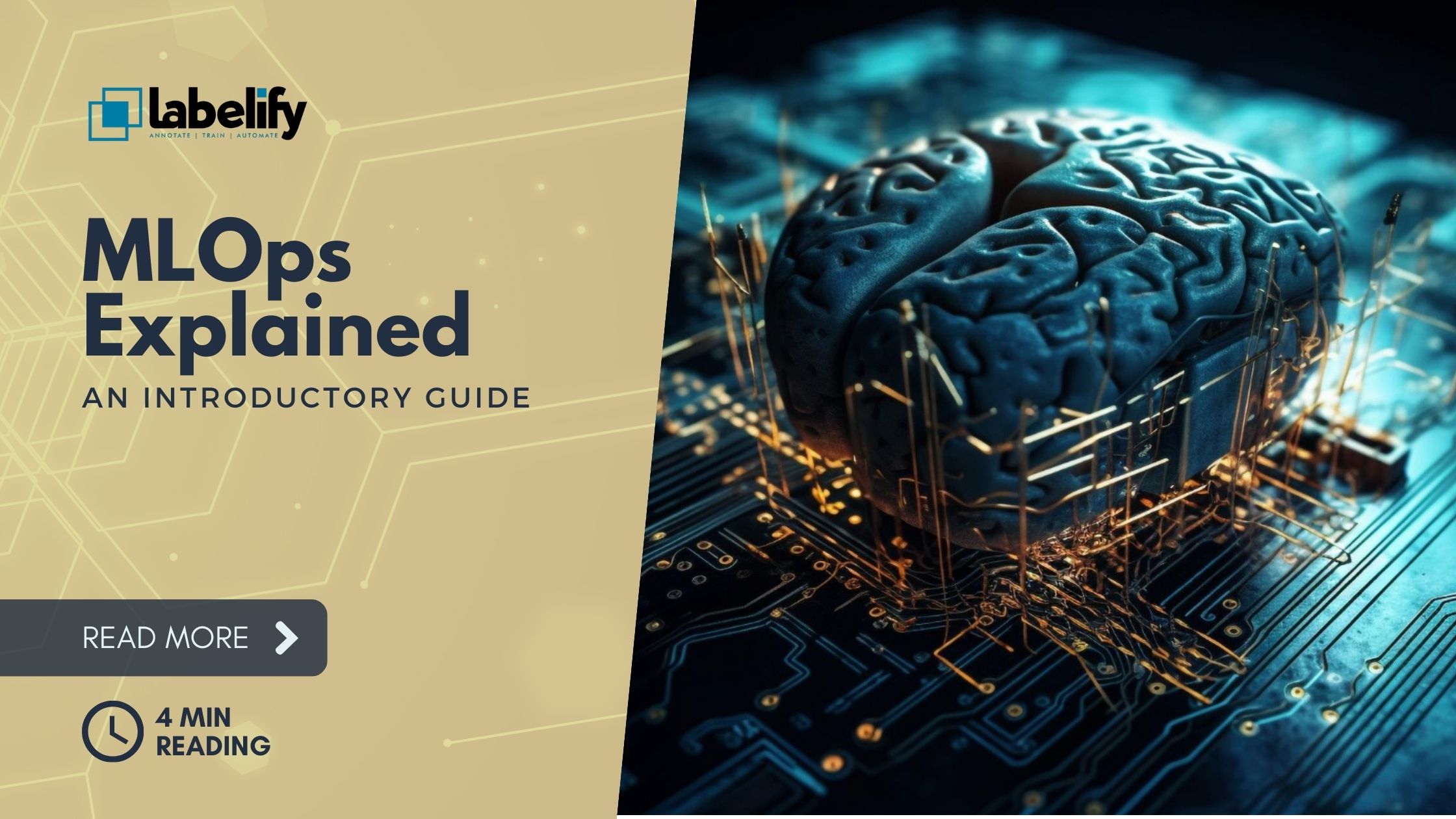In the dynamic realm of machine learning, the integration of efficient practices and methodologies has become paramount. One such paradigm is MLOps, a set of practices that streamlines the organization, maintenance, and development of machine learning systems.
By enabling the seamless transition of models from design to production, MLOps emphasizes agility and cost-effectiveness. Automation, reproducibility, traceability, and quality assurance form the foundation of this approach, ensuring the utmost efficiency and reliability of machine learning pipelines and models.
This article delves into the fundamentals of MLOps, providing insights into its implementation and future trends.
重要なポイント
- MLOps is a new paradigm and set of practices that help organize, maintain, and build machine learning systems.
- MLOps emphasizes automation, reproducibility, traceability, and quality assurance of machine learning pipelines and models.
- MLOps teams are diverse and include data scientists, ML researchers, data and software engineers, and communication specialists.
- Scoping and planning are important in MLOps, involving problem assessment, dataset gathering, tradeoff considerations, and deployment method determination.
MLOps: Definition and Key Principles
MLOps is defined as the implementation of machine learning operations, which involves the application of key principles to organize, maintain, and build machine learning systems.
The implementation of MLOps brings both benefits and challenges to organizations. On one hand, MLOps enables teams to streamline the development and deployment of machine learning models, resulting in faster time to market and increased efficiency. It also ensures reproducibility and traceability, allowing for better collaboration and decision-making.
However, there are also challenges in implementing MLOps. These include the need for specialized expertise and resources, the complexity of managing data and models at scale, and the potential for bias and ethical concerns in machine learning algorithms.
Team Composition in MLOps
The composition of teams in MLOps involves diverse professionals with expertise in data science, machine learning, software engineering, and communication. Team collaboration is crucial in MLOps to ensure the seamless integration of various skill sets and perspectives.
This collaboration enables the development and deployment of high-quality machine learning models in production environments. Skill requirements for MLOps teams include a deep understanding of data science and machine learning algorithms, proficiency in software engineering practices, and effective communication skills.
Additionally, the ability to adapt to rapidly evolving technologies and techniques is essential in this dynamic field. By bringing together professionals with diverse backgrounds and skill sets, MLOps teams can effectively navigate the complexities of developing and maintaining machine learning systems, ultimately delivering innovative solutions that liberate businesses from traditional constraints.
Scoping and Planning a Machine Learning Project
Scoping and planning a machine learning project involves assessing the problem's suitability for a machine learning solution and determining the most appropriate models to address it. This stage is crucial in project management as it sets the foundation for success. Here are some key points to consider:
- Challenges in Scoping:
- Identifying the problem's complexity and whether it can be effectively solved using machine learning techniques.
- Assessing the availability and quality of relevant datasets.
- Understanding the tradeoffs between model accuracy and inference speed.
- Project Management:
- Defining clear project goals and objectives.
- Establishing a realistic timeline and allocating resources accordingly.
- Adopting an iterative approach to development and testing.
- Ensuring effective communication and collaboration among team members.
Versioning, Reproducibility, and Testing in MLOps
Versioning, reproducibility, and testing are crucial aspects of ensuring the reliability and quality of machine learning operations.
In the realm of MLOps, data management and quality assurance play a significant role in maintaining the integrity of machine learning models and pipelines. Versioning allows for tracking changes in datasets and models, ensuring transparency and reproducibility. Open source data versioning tools like DVC or MLOps platforms facilitate this process.
Reproducibility ensures that models, results, and bugs can be consistently replicated, enabling teams to identify and address issues effectively. MLOps incorporates principles of unit and integration testing from DevOps, including model and data validation tests.
Architectural and System Design Challenges in MLOps
Architectural and system design challenges in MLOps require careful consideration of scalability, cost-efficiency, and infrastructure flexibility. To address these challenges, we must envision innovative and bold solutions that liberate organizations from the constraints of traditional approaches.
Here are two key aspects to consider:
- Infrastructure scalability:
- Embrace cloud-based solutions that allow for dynamic scaling of resources based on demand.
- Leverage containerization technologies like Kubernetes for efficient resource allocation and management.
- Cost-efficient solutions:
- Optimize resource utilization by implementing auto-scaling mechanisms and intelligent workload distribution.
- Explore serverless computing options to reduce costs by only paying for actual usage.
By focusing on infrastructure scalability and cost-efficient solutions, organizations can build highly adaptable and economically viable MLOps architectures. This will enable them to unlock the full potential of machine learning and drive transformative business outcomes.
Let's continue pushing the boundaries and evolving the practices to meet the ever-growing demands of MLOps.
Implementing MLOps: Best Practices and Considerations
To successfully implement MLOps, organizations must prioritize collaboration and establish clear communication channels among multidisciplinary teams. This approach fosters a culture of innovation and allows for the seamless integration of machine learning operations into existing workflows.
However, implementing MLOps is not without its challenges. Organizations must navigate issues such as data governance, model versioning, and infrastructure scalability. It is crucial to address these challenges head-on, leveraging best practices and learning from MLOps implementation case studies.
Future Trends in Machine Learning Operations
One emerging trend in machine learning operations is the adoption of advanced automation techniques. As AI continues to evolve, it is crucial to integrate ethical considerations into MLOps processes. This includes ensuring fairness, transparency, and accountability in machine learning models and their deployment. Automation in MLOps not only streamlines workflows but also helps in addressing AI bias and promoting responsible AI practices.
In addition to AI ethics, automation also plays a key role in improving the efficiency and productivity of MLOps teams. By automating repetitive tasks such as data preprocessing, model training, and deployment, organizations can accelerate the development and deployment of machine learning systems. This allows data scientists and ML researchers to focus more on innovation and problem-solving, liberating them from mundane and time-consuming tasks.
Some key trends in automation in MLOps include:
- Automated model selection and hyperparameter tuning: Machine learning algorithms are becoming more complex, and manually tuning models can be time-consuming and error-prone. Automation techniques, such as automated model selection and hyperparameter tuning, can help optimize models and improve their performance.
- Automated monitoring and retraining: Machine learning models need to be continuously monitored to ensure their performance and accuracy. Automated monitoring techniques can detect anomalies and trigger retraining processes when necessary, ensuring that models stay up-to-date and reliable.
In the future, we can expect even more advancements in automation in MLOps, enabling organizations to build and deploy AI systems that are not only efficient but also ethically sound. With automation, MLOps teams can focus on creating innovative solutions while ensuring responsible and accountable AI practices. This liberates them to explore the full potential of AI technology while keeping ethical considerations at the forefront.
よくある質問
What Are Some Common Challenges Faced by MLOps Teams When It Comes to Managing and Organizing Machine Learning Models?
Some common challenges faced by MLOps teams when managing and organizing machine learning models include:
- Data governance: This involves ensuring the quality, privacy, and security of data used in machine learning processes. Proper data governance practices are necessary to maintain the integrity and reliability of the models.
- Model monitoring: Tracking model performance and detecting and resolving issues in real-time is crucial for effective management and organization of machine learning models. Monitoring allows teams to identify any anomalies or deviations from expected behavior and take corrective actions promptly.
These challenges require innovative and bold approaches to ensure effective management and organization of machine learning models. By addressing data governance and implementing robust model monitoring practices, MLOps teams can empower themselves to achieve liberation in their operations.
How Can MLOps Teams Ensure the Quality and Reliability of Their Machine Learning Pipelines and Models?
MLOps teams can ensure the quality and reliability of their machine learning pipelines and models by implementing robust monitoring and validation practices.
This includes continuously monitoring model performance, tracking key metrics, and promptly addressing any issues or anomalies.
Additionally, conducting regular model validation tests, such as data drift and model accuracy assessments, helps ensure that the models are accurate and reliable over time.
What Are Some Best Practices for Versioning and Reproducibility in Mlops?
Version control and reproducibility are critical best practices in MLOps.
Version control ensures that changes to datasets, models, and code are tracked and can be easily reverted if needed.
Reproducibility ensures that the results and performance of models can be consistently obtained.
What Are the Key Considerations When It Comes to Scoping and Planning a Machine Learning Project?
Scoping considerations and the planning process are critical in machine learning projects.
Scoping involves determining whether a problem requires a machine learning solution and what type of models are suitable. It also entails gathering representative and high-quality datasets and considering tradeoffs, such as precision versus inference speed.
The planning process involves selecting the deployment method and creating a roadmap based on these considerations.
Proper scoping and planning ensure the success of machine learning projects by aligning them with business goals and optimizing resource utilization.
How Can MLOps Teams Address the Architectural and System Design Challenges in Deploying and Scaling Machine Learning Models in the Cloud?
MLOps teams can address the architectural and system design challenges in deploying and scaling machine learning models in the cloud by addressing system complexity and implementing automation.
By leveraging cloud services and infrastructure solutions, teams can ensure flexibility and fast scaling to handle fluctuating demand.
They can also manage artifacts, metadata, and logs effectively to ensure traceability and reproducibility.
Continuous development of better practices and tools is crucial to overcome challenges and achieve successful deployment and scaling in the cloud.
結論
In conclusion, the integration of MLOps practices has revolutionized the field of machine learning by emphasizing automation, reproducibility, traceability, and quality assurance.
With a diverse team composition and specialized expertise, MLOps ensures the efficiency and reliability of machine learning pipelines and models.
By addressing scoping and planning, versioning and reproducibility, testing considerations, and architectural challenges, MLOps paves the way for future advancements in machine learning operations.
This visionary and innovative approach holds the potential to unlock new possibilities and drive further innovation in the field.




